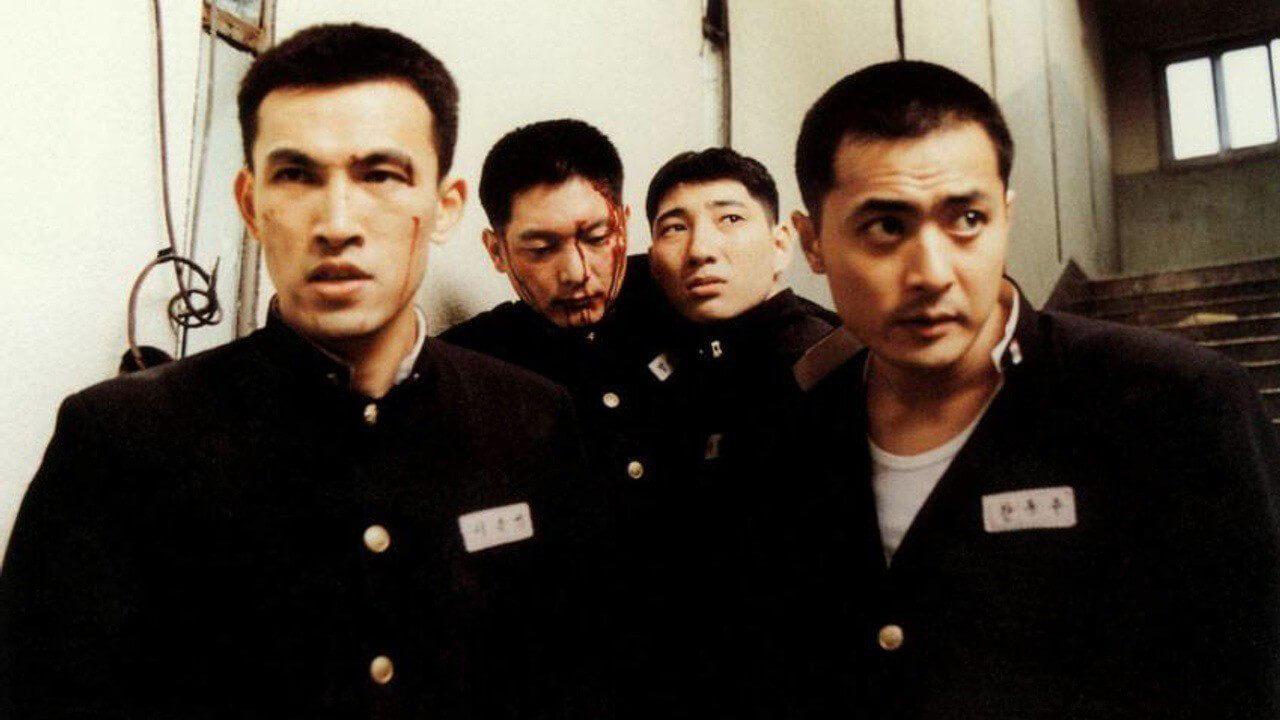Friend by Kwak Kyung-Taek (Review)

Movies like Friend are the reason I throw movie marathons. Heck, they’re the reason I watch movies in the first place. A gripping drama that follows four childhood friends throughout the years, Friend delivers on nearly every count. The movie begins in the ’70s with our main characters, all young boys. Though they’re from different income levels, they stick together through thick and thin. As they go through high school, their bond is strengthened by abusive teachers and constant fighting and tested by girls and family strife.
However, the ultimate test comes when two of them (Jeong-Suk and Dong-Su) begin rising through the ranks of the mob, becoming powerful members of rival gangs. Meanwhile, the other two (Jeong-Ho and Sang-Taek) choose a straighter path, going off to school and getting legitimate jobs. It’s obvious that Jeong-Suk and Dong-Su are headed for a confrontation, and one is left hoping their past friendship will be enough to save them both — that Jeong-Ho and Sang-Taek can help their troubled chums.
If you want action, Friend delivers some incredible action sequences ranging from a high school brawl that finds the four taking on a theatre full of classmates to Dong-Su’s bloody raid on Jeong-Suk’s turf. If you want drama and tragedy, they’re there as well, anchored by gripping performances by the four leads. And there’s even humor, especially in the early scenes, as the friends raise, get into, and bail each other out of all sorts of trouble. Unfortunately, as the movie progresses, we see them begin to reap the fruits of their seemingly innocent hell-raising.
Based on director Kwak Kyung-taek’s childhood experiences, Friend merges a very slick, stylish drama (special kudos to cinematographer Hwang Ki-Seok) with a very deep, thoughtful storyline. Think of it as the Korean Goodfellas, and you’re getting pretty close. At times, the movie does get a little too bogged down on the gangster side of things. I found myself wondering what Jeong-Ho and Sang-Taek — who serves as the film’s narrator — were up to, and if they were faring any better than their criminal friends. Their appearances later in the film are a bit too few and far between, and their characters never really become as fleshed out and developed as the other two.
But that’s really a very minor quibble. It certainly doesn’t diminish the power that Friend has at the end, and it doesn’t spare the viewer from the sorrow of innocence lost. The final conversation between Jeong-Suk and Sang-Taek is especially moving, speaking as childhood friends even as they both know they can never hope to make things right. Friend forces you to feel the weight of that sorrow in no uncertain terms, and I found myself quite shaken by the time the credits started rolling.
Friend gets my highest recommendation, but just prepare yourself before watching. It will not leave you unmoved.
